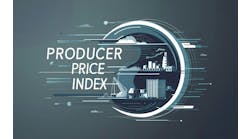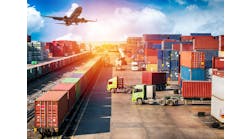If anyone needs proof of how poorly conceived legislation can add unnecessary costs to the supply chain—costs that are ultimately borne by consumers—cite these three examples:
Example 1: The Retail Chain
The discovery of lead paint on toys from China created significant changes in the supply chain for consumer products. Imported products with lead paint are illegal in the U.S. In less of a play-to-the-headline environment, an appropriate approach to breaches of this law would be to track down the producer and deal with both that producer and the supplier as individuals and companies that need to incur severe consequences for their behavior.
Instead, a congressional investigation led to new laws and federal regulations that would have created joint and severable liability for all of the participants in the supply chain. In legal terms, it would have turned every third-party logistics provider into the equivalent of a beneficial owner of the product and responsible for the recall.
The logic and facts embodied in earlier laws recognizing that the warehouse-based 3PL has limited and often zero knowledge of product quality was of little import. Congress wanted a totally secure supply chain and the solution chosen in the heat of the moment was to make it impossible for 3PLs to comply with the law.
Fortunately, there is a happy ending to this story, but only because the industry worked directly with congressional staff and officials to explain the concept of care, custody and control versus beneficial ownership. Without this intervention, hundreds of years of case law and practice would have been changed, commerce to warehousing severely restricted and our supply chain limited by the capital and operational warehousing capacity of the beneficial owner of the product.
Example 2: The Food Chain
A second instance deals with food in the supply chain. The facts are similar: A bad product enters the supply chain at the manufacturing level and it moves through the supply chain to the consumer. Headlines are made and Congress responds with another piece of legislation that would convert the status of every business in the supply chain into being the owner of the food product.
But once a news media feeding frenzy ensues, what follows are rounds of hearings, new, hastily conceived legislation, and Congress and regulators seeking to have everyone in the supply chain deemed responsible as the owners of the freight for executing and implementing a recall. Once again, Congress moves to unhinge years of commercial law and bailee status.
And once again the 3PL industry had to show Congress and the regulatory agencies that it can track and trace, and can isolate products, but only if and when 3PLs are notified of the same. To require 3PLs to do anything else is to convert them into the shipper, which would put 3PLs in an untenable position.
Again, this story has a current happy ending in that we were able to secure recognition of the proper role of 3PLs in the final legislation, but our educational campaign continues in high gear to demonstrate to the regulators that we can isolate and quarantine as needed through our track and trace capacity.
Example 3: The Pharma Chain
Counterfeit drugs, gray market pharmaceuticals and products beyond their expiration date are serious threats to our health, but once again, the regulatory community sets its sights on the wrong supply chain targets. 3PLs do not manufacture drugs and they certainly do not swap out good drugs for bad inside the warehouse.
But, speaking for the 3PL industry, when we are questioned based on the unfounded assumption that we have been part of the problem, we must respond that we never hurt anyone, never will hurt anyone and do not have the motive, means or opportunity to hurt anyone. Of course, there are bad actors who need to be dealt with, but no one has ever shown that warehouse 3PLs are among that crowd.
In this instance, the issue remains subject to intense legislative debate about who can handle pharmaceutical products, under what conditions, and how track and trace must be implemented across the nation.
Custodian, not owner
The commercial warehouse industry desires nothing less than a secure and safe supply chain, and is totally prepared to fulfill its proper role in ensuring that result. However, that result can be attained by deploying a comprehensive track and trace system and retaining the commercial role of the 3PL warehouse as custodian of goods shipped versus beneficial cargo owner.
The three examples offered here occurred all within the past three years and recent events show the headline-driven drill is likely to continue. Last month it was reported that members of Congress were having second thoughts about the Transportation Worker Identification Credential system following a May 10 Government Accountability Office report that questioned the TWIC program’s effectiveness.
The General Accounting Office (GAO) reported that its covert investigators were able to enter port property with transportation worker identification acquired by fraudulent means. In one case, they reportedly entered the property in a truck loaded with fake explosives. GAO also said that the Transportation Security Administration lacked the internal controls to assure the eligibility of applicants to acquire the biometric card. At the request of members of Congress, GAO is now performing a thorough investigation of the entire program.
How to stop chain reactions
We also are continuing to see how domestic political concerns are holding up approval of free trade agreements with South Korea, Colombia and Panama. The reason is that one political party is entering national elections next year believing it has a greater need to strengthen its bonds to its labor union supporters than it does to serve as a custodian of the nation’s economic needs.
Unfortunately, the headline-driven reaction of Congress and the regulatory community to these issues, especially regarding immediate public safety and security concerns, will not go away any time soon. These pressures in fact will increase every single time an incident makes the news that involves goods moving from outside to inside the U.S.
Given that this seems to be a never-ending performance on the part of the news media, Congress and federal regulators, what can we do?
First, all elements in the supply chain need to educate regulatory officials with observable facts about how the supply chain process works. Regulators should see how a 3PL stores and handles food supplies, including marking, tagging, lot identification and organization. They must be able to see, touch and experience a real business operation so they can evaluate for themselves the facts of our statements. Most of them have no experience of how a real business operates or how we serve our customers.
Secondly, to be successful in making our case, intellectual rigor and third-party experts are critical. Often times, although we believe the facts clearly support our position, we need the help of individuals who are respected and trusted by the policymakers to provide them with unassailable facts and legal expertise.
Third, it means stating up front that our desire is the same as Congress, the regulators and the large manufacturers: a safe and secure supply chain that can track, trace and isolate products identified as being harmful. We must come to the debate armed with facts, and work to identify what public good they want to attain. IWLA members never would have been able to secure inclusion of our 3PL definition in federal law without first persuading officials that we were on the side of public health and safety. Fourth, all elements in the supply chain need to communicate and work with each other during the legislative and regulatory processes and to educate each other as to our roles in the supply chain. We all should have a seat at the table when these crucial issues are being deliberated.
Let’s be real
We expect many more of these forays by Congress and federal regulators into the supply chain. The industry must respond by working to develop solutions that address their concerns and protect the public, while allowing us to do our jobs of ensuring that this nation’s supply chain efficiency and competitive advantage are maintained. This task requires us to be educators first and foremost, to drive home the reality of how we have created and continue to maintain a safe and secure supply chain.
The consequence of not taking action—of not addressing up front the concerns for public safety—is losing our legal identity and our ability to perform our role in the way we should.
Joel Anderson is president of the International Warehouse Logistics Association () and a member of MH&L’s Editorial Advisory Board.


